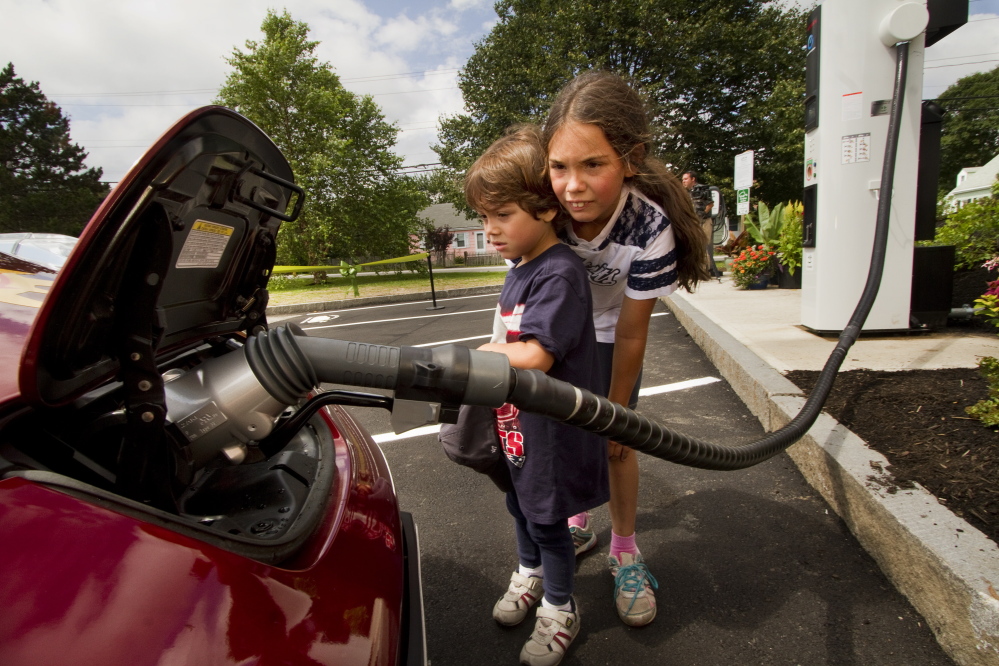Forget road rage – the transportation neurosis we’re worried about is “range anxiety.”
That’s a concern of drivers that they can’t rely on an electric car because the battery will run down and leave them stranded. It’s the concern that keeps many people from choosing a plug-in electric car, sticking with gas-powered cars that are dirtier and more expensive to operate – but, at least for now, more reliable at long distances.
Someday, when charging stations are as common as gas stations, this won’t be a problem. But as long as places to plug in are hard to find, electric vehicles look like a risky choice. And the fewer the plug-in cars, the less demand there is for installing charging stations.
Fortunately, Portland and South Portland are breaking the chicken-and-egg cycle. Last week, high-speed chargers were installed on public property in each city, giving electric vehicle drivers the peace of mind of knowing that if they drive to these two cities, they will be able to get home.
Some will question why the government should care how people make their cars go. Gas stations are private businesses, and the law of supply and demand will make charging stations exactly as common as the market says they need to be.
But there is a public good if at least some drivers chose to shift to electric vehicles. We all breathe the air, and the fumes that come from gas-powered cars are the biggest single source of air pollution in most places. Reducing the number of gas engines would make for cleaner air and fewer lung ailments.
Transportation is also a major source of greenhouse gases. While most of our electricity in Maine comes from burning natural gas, it is a cleaner fuel than gasoline and has a lower carbon footprint. And as more of our electricity comes from hydro, wind, solar and other renewables, electric cars are even more beneficial.
A bigger electric fleet would also be a boon to the economy. Billions are spent every year on gasoline. Some of that goes to local merchants, but the majority leaves the state to pay the oil producer. In states that have off-peak pricing for electric power, running an electric car is like paying 75 cents a gallon for gas. Fewer dollars spent on gas means more money to spend elsewhere in the local economy.
Electric vehicles may not be right for everyone, but a significant number of commuters would make the transition if they knew that they could reliably count on places to charge their batteries.
Once these vehicles become more common, range anxiety won’t be a problem. But until then, it’s in everybody’s interest to help electric car drivers relax.
Send questions/comments to the editors.



Success. Please wait for the page to reload. If the page does not reload within 5 seconds, please refresh the page.
Enter your email and password to access comments.
Hi, to comment on stories you must . This profile is in addition to your subscription and website login.
Already have a commenting profile? .
Invalid username/password.
Please check your email to confirm and complete your registration.
Only subscribers are eligible to post comments. Please subscribe or login first for digital access. Here’s why.
Use the form below to reset your password. When you've submitted your account email, we will send an email with a reset code.